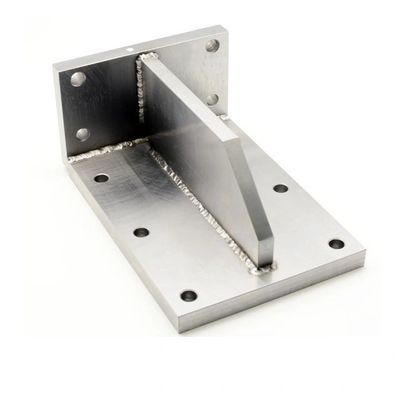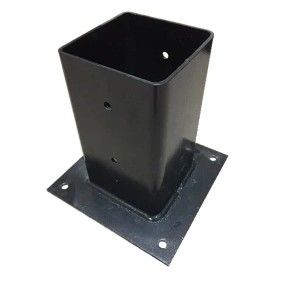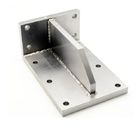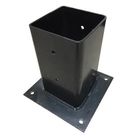-
Stainless Steel Sheet Metal Fabrication
-
Aluminium Sheet Metal Fabrication
-
Precision Sheet Metal Fabrication
-
Sheet Metal Cabinet Fabrication
-
Sheet Metal Enclosure
-
Sheet Metal Box Fabrication
-
Precision Metal Stamping
-
Laser Cut Sheet Metal Service
-
Sheet Metal Bending
-
Sheet Metal Welding
-
Mild Steel Fabrication
-
Sheet Metal Bracket
Metal Fabrication Aluminum Fabrication Service Tube Cutting Welding Service
| Place of Origin | Suzhou, China |
|---|---|
| Brand Name | JDC |
| Certification | ISO 9001 : 2015 |
| Model Number | JDC094 |
| Minimum Order Quantity | 25 |
| Price | USD $1~$100/piece |
| Packaging Details | According to the customer's requirements |
| Delivery Time | 10~30 days |
| Payment Terms | L/C, D/A, D/P, T/T, Western Union, MoneyGram |
| Supply Ability | 10000 pieces per month |

Contact me for free samples and coupons.
Whatsapp:0086 18588475571
Wechat: 0086 18588475571
Skype: sales10@aixton.com
If you have any concern, we provide 24-hour online help.
x| Product Name | China Metal Fabrication Factory Aluminum Fabrication Service | Material | Mild Steel; Stainless Steel; Aluminum... |
|---|---|---|---|
| Color | Black; White; Silver... | Process Method | Laser Cutting; Bending; Welding; Stamping... |
| Surface | Powder Coating; Anodizing; Sand Blasting; Brushed Finishing... | Size | Custom |
| Package | Carton; Wooden Case... | Application | Industry,Metal Parts,home Appliance,Auto /medical/agricultural/train/valve/textile,Ductwork |
| Type | OEM Parts,Stamping Hardware Part,sheet Metal | Tolerance | 0.003~0.01mm,Customized |
| Thickness | 0.5mm-20mm,Various | ||
| High Light | Custom Aluminum Sheet Fabrication 2024t3,Custom Aluminum Sheet Fabrication 3003,Stamped Aluminum Panels 2024t3 |
||
Aluminum fabrication service
Description
Aluminum fabrication service involves the manufacturing and production of aluminum-based products or components based on specific design requirements. It encompasses a range of processes such as cutting, shaping, forming, joining, and finishing aluminum materials to create finished products.
In this service, skilled professionals utilize their expertise and knowledge of aluminum properties to transform raw materials into desired forms and structures. They employ various techniques, such as welding, bending, machining, and surface treatment, to shape and manipulate the aluminum to meet precise specifications.
Aluminum fabrication service caters to diverse industries, including construction, automotive, aerospace, electronics, and many more. It offers a wide range of possibilities, from manufacturing simple aluminum structures to intricate and complex assemblies.
The service typically involves close collaboration between the customer and the fabrication provider to understand the specific requirements, design considerations, and performance expectations. This ensures that the final aluminum products meet the desired functionality, durability, and aesthetic appeal.
Common Aluminum fabrication service technology
Aluminum fabrication service commonly employs several sheet metal processes. Here are some commonly used sheet metal fabrication techniques in aluminum fabrication:
1. Cutting: Aluminum sheets are cut into desired shapes or sizes using methods such as shearing, sawing, laser cutting, or waterjet cutting. These processes ensure precise and clean cuts on the aluminum sheets.
2. Bending: Aluminum sheets are bent or formed into specific angles or curves using techniques like press brakes or rollers. This process allows for the creation of various shapes and structures according to design requirements.
3. Punching: Aluminum sheets undergo punching processes to create holes, slots, or specific cutouts. This is achieved by using punch and die sets, which apply force to the aluminum sheet to remove the desired material.
4. Forming: Forming involves manipulating aluminum sheets to create three-dimensional shapes or structures. Techniques like roll forming, deep drawing, or hydroforming are utilized to achieve complex and intricate designs.
5. Welding: Welding plays a crucial role in joining aluminum components together. Common welding methods for aluminum fabrication include TIG (Tungsten Inert Gas) welding, MIG (Metal Inert Gas) welding, or spot welding. Welding ensures strong and durable connections between aluminum parts.
6. Riveting: Riveting is a process of fastening aluminum sheets or components using rivets. It involves inserting a rivet through aligned holes and deforming the end to secure the joint. Riveting provides robust and reliable connections for aluminum structures.
7. Surface Finishing: Surface finishing processes are applied to aluminum sheets to enhance their appearance, protect against corrosion, or improve functionality. Common surface finishing methods include anodizing, powder coating, painting, polishing, or brushing.
8. Assembly: Assembly involves the integration of different aluminum components to create a final product or structure. Fasteners, adhesives, or mechanical joining methods are used to securely join the aluminum parts together.
Main Technical specifications of China Metal Fabrication Factory Aluminum Fabrication Service
| Product Name | China Metal Fabrication Factory Aluminum Fabrication Service |
| Material | Aluminum, phosphor bronze,stainless steel,steel,alloy,copper,plastic,etc |
| Surface Finish | Hot galvanized,Polish,Anodize,Sand blasting,Powder coating,Vacuum Plating,Nickel, Zinc, Chorme,Tin, Silver plating, gold-plated, imitation gold-plated,etc. |
| Machining Equipment | CNC stamping/punching machine, CNC bending machine, CNC cutting machine, 5-250T punching machine, welding machine, polish machine |
| Thickness | 0.5mm~12mm, or other special available |
| Working Process | stamping, deep stamping, bending, punching, threading,welding, tapping, riveting |
| Packing | Inner-Plastic Bag; Outer -Standard Carton Box. |
| Standard | DIN,JIS,ASTM,AISI,BS,GB |
Picture
![]()
Application
1. Construction Industry: Aluminum fabrication is extensively used in the construction industry for architectural structures, façades, windows, doors, roofing systems, and curtain walls. Aluminum's lightweight, corrosion resistance, and flexibility make it an ideal choice for modern construction projects.
2. Automotive Industry: Aluminum fabrication is utilized in the automotive industry for manufacturing components such as body panels, frames, engine parts, suspension systems, and heat exchangers. Aluminum's high strength-to-weight ratio contributes to fuel efficiency and improves overall vehicle performance.
3. Aerospace Industry: Aluminum fabrication plays a vital role in the aerospace industry for manufacturing aircraft components, including fuselages, wings, structural frames, and engine parts. Aluminum's lightweight nature, corrosion resistance, and excellent strength properties make it crucial for aircraft design and performance.
4. Electrical Industry: Aluminum fabrication is employed in the electrical industry for manufacturing conductors, heat sinks, enclosures, and components for power distribution systems. Aluminum's good electrical conductivity and thermal properties make it suitable for electrical applications.
5. Marine Industry: Aluminum fabrication is widely used in the marine industry for manufacturing boats, yachts, shipbuilding components, and offshore structures. Aluminum's corrosion resistance, lightweight, and high strength make it ideal for marine environments.
6. Consumer Goods: Aluminum fabrication is utilized in the production of consumer goods such as appliances, furniture, sports equipment, and kitchenware. Aluminum's aesthetic appeal, durability, and recyclability contribute to its popularity in consumer products.
7.Electronics Industry: Aluminum fabrication is employed in the electronics industry for manufacturing electronic enclosures, heat sinks, chassis, and components. Aluminum's thermal conductivity and lightweight nature help dissipate heat generated by electronic devices.
8. Renewable Energy: Aluminum fabrication is utilized in the renewable energy sector for manufacturing components of solar panels, wind turbines, and energy storage systems. Aluminum's corrosion resistance and lightweight properties contribute to the efficiency and longevity of renewable energy systems.






